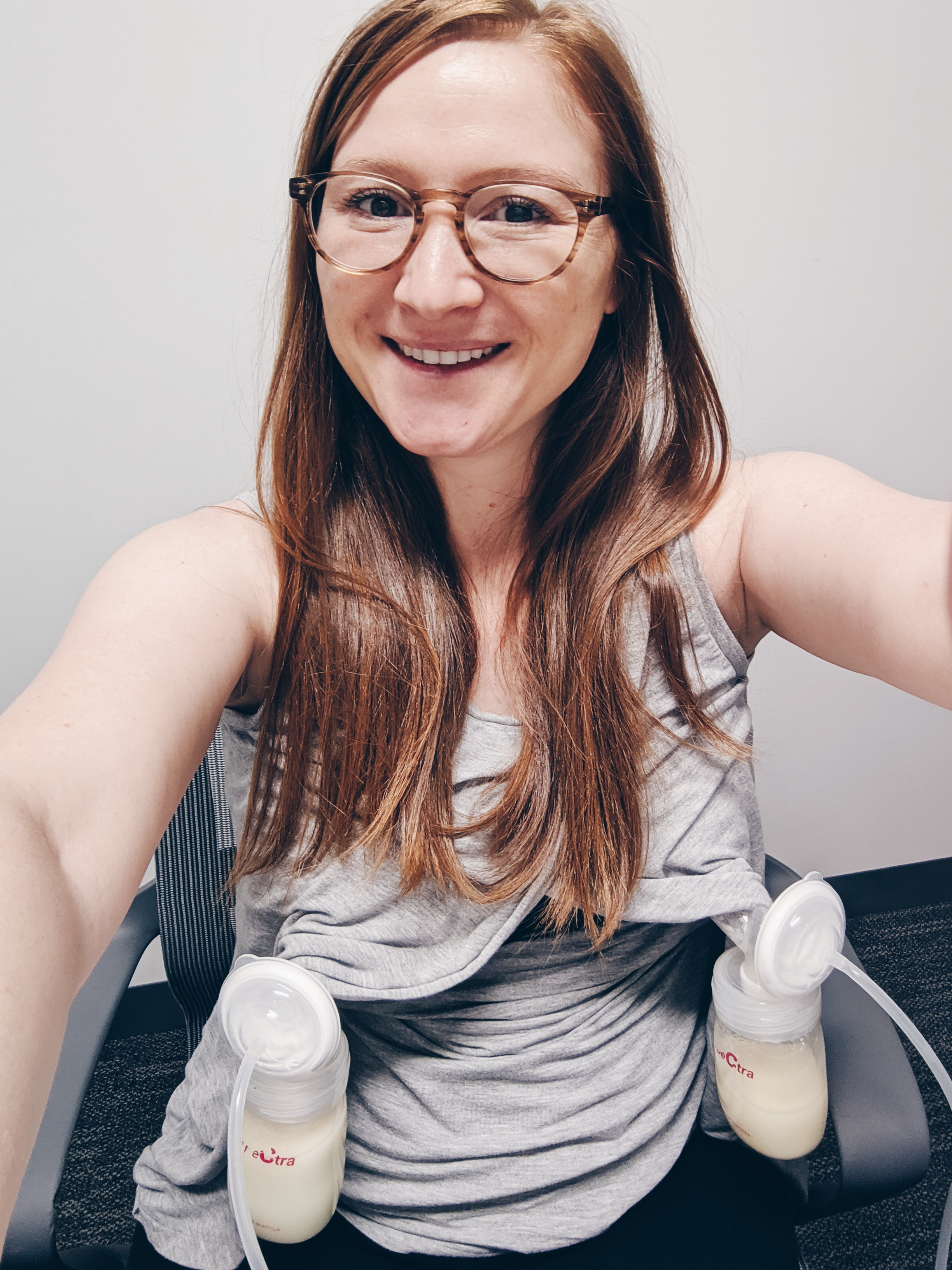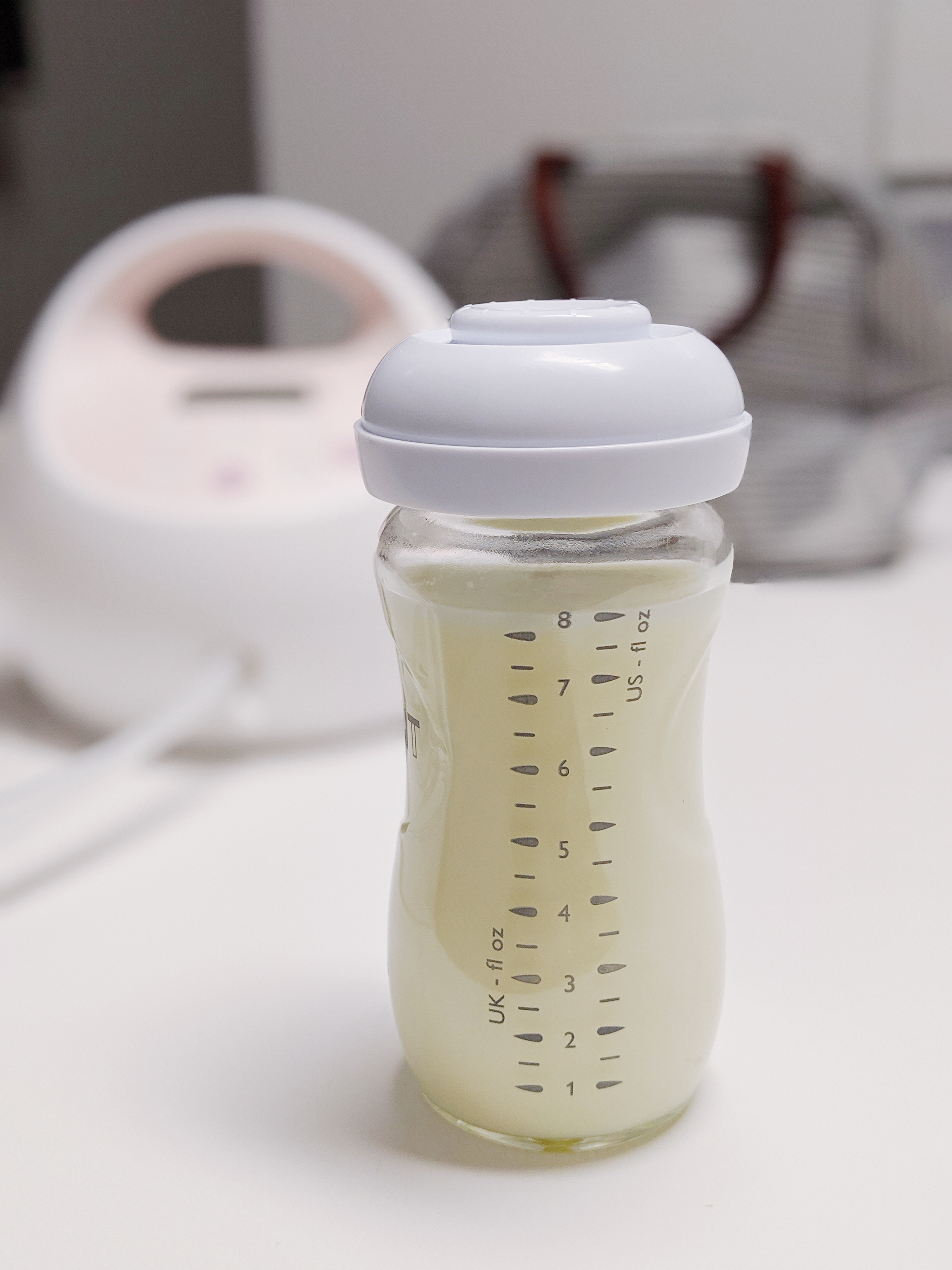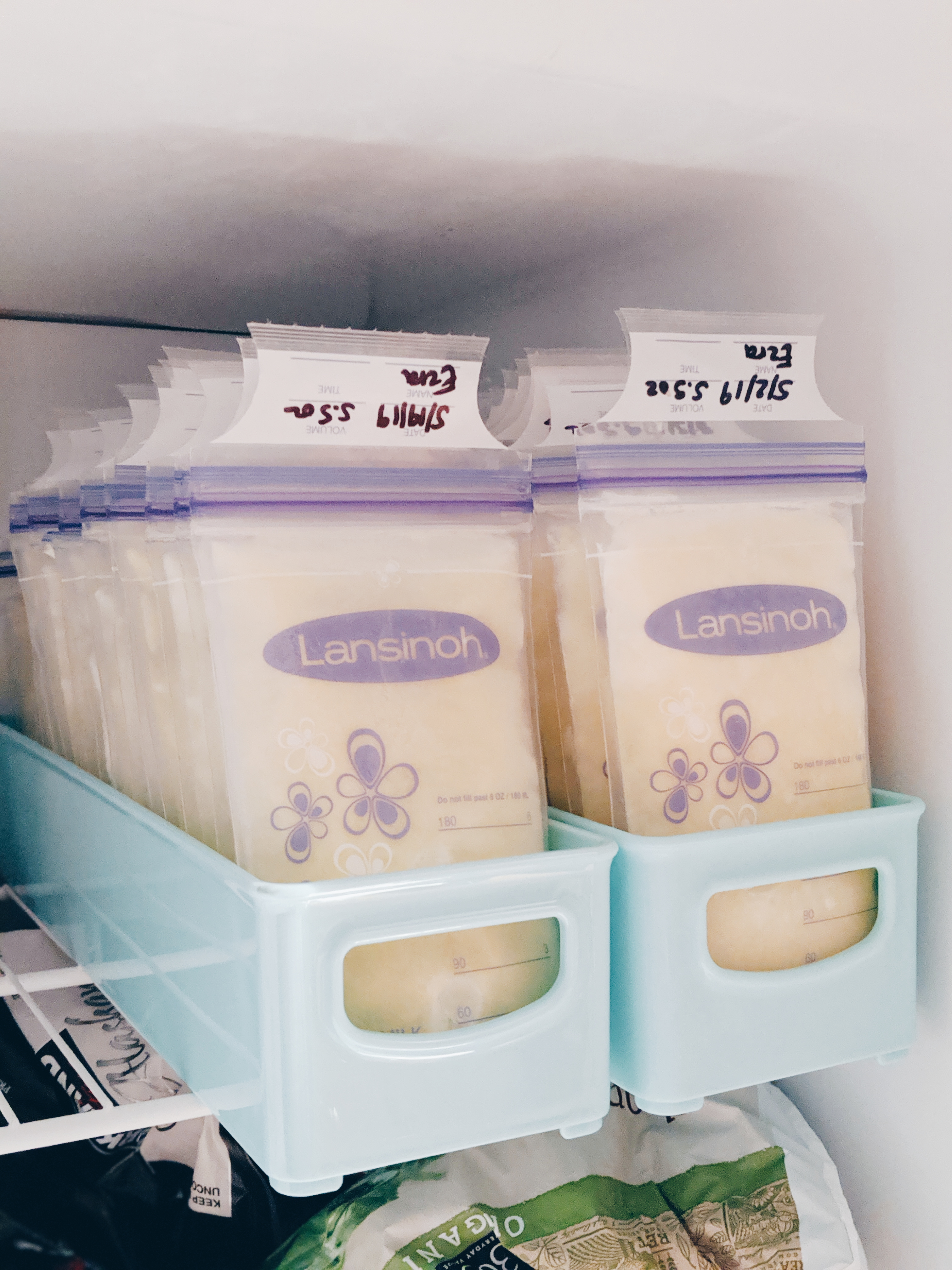
When talking to any new mama, she likely has a breastfeeding journey to share. IT. IS. TOUGH. Looking back, having friends that were so open with their breastfeeding struggles over the years was so important during my journey. And so I’m telling my story with hopes that I can do the same for others.
During pregnancy, I researched HARD. And it is the one over-researched topic in my life that completely paid off. Almost immediately after finding out I was pregnant, I joined the LLLI Breastfeeding Support Group on Facebook and spent most of my sleepless nights reading through new mama questions, IBCLC {International Board Certified Lactation Consultant} advice, and expert mama advice. And if I only took away two things, they were 1. Get help before there’s a problem, and 2. Nurse on demand. My secondary take-away was that it’s an unpredictable process and I was going to have to learn how to read my babe when he arrived.
And then he arrived… four weeks early. When my water broke at 36 weeks I was filled with a lot of panic. The anchor of my birth plan, delivering at a birthing center, was immediately ruled out. And while coming to terms with delivering at a hospital, I wondered if my body would be ready or able to breastfeed this early. It turns out that breastfeeding a late-term preemie was a legitimate thing to worry about.
Ezra August, while early, was a beefy little baby. He weighed 6lb 3oz and measured 20in. He passed every newborn screening with flying colors, landing him a spot in our room rather than spending any time in the NICU. We were given extra attention by the hospital lactation consultant staff because he was a 36-weeker. Ez latched and my body was producing colostrum almost immediately. All felt good! …Until it didn’t.

At 36 hours, Ezra’s labs indicated he was slightly jaundice and also that he was having a tough time keeping his glucose levels up. My world felt wrecked. We were not bringing our boy home any time soon and the pressure to supplement with formula was STRONG {they wanted him to poop the bilirubin out}. I had three nursing mama friends at the time and I knew one of them would be able to help me out {it made me cry when all three offered to help}. Ezra was given 15mL of formula against my wishes while my husband went to pick up donor milk from my friend Amanda. The hospital staff experienced the greatest meltdown of my life while I was wearing nothing but mesh panties, covered in tears.

Rewinding back to getting help before there was a problem… I had already sourced a lactation consultant that was covered by my insurance in the early days, so I got the wheels in motion to schedule a visit after I was discharged. But in the meantime, I worked with the hospital lactation consultants to “triple feed” and that would be my life for the next couple weeks.
Triple feeding was hell. I’d nurse Ezra to get him familiar with the breast and trigger my body to produce milk. I’d top him off with Amanda’s milk. And then I’d pump, pump, pump. I did this 10 to 12 times per day, around the clock, for about 2-½ weeks. I had little faith that I’d be able to exclusively nurse one day. And I felt like a slave to an electrical outlet. Looking back, I’m so grateful for my husband who, never once, suggested formula being an option. Even though I was exhausted, felt devastated that I didn’t get to experience the last month of pregnancy, and my breasts were constantly hooked up to something – quitting never felt like an option.
Then something good happened. Ez was gaining weight like a champ! He was back to his birth weight before two weeks. I was going to weekly lactation consultant appointments where the IBCLC monitored his latch, gave me tips on how to help him latch better, and weighed my nursing sessions. The weighing of nursing sessions was key to giving me confidence that my body was enough for Ezra. After he hit his birth weight, I took a leap of faith, gave up the pump, and started exclusively nursing. And I nursed, nursed, nursed whenever he even hinted that he might be hungry and never looked back.
What to expect in the early weeks
While his struggle was over, my struggle was just beginning. Because of triple feeding I had this miraculously plentiful milk supply. But because of that {I think}, I also developed milk blebs {milk blisters}. In addition to the normal pains of breastfeeding {sore, chapped nipples}, I also experienced razorblade-like pain in my left breast every time I nursed for the first 10 weeks. One milk blister would heal, just for another {or two!} to take its place. My solution for this ended up being nursing on the “bad side” first, lots of aggressive rubbing with a warm washcloth, massaging my breast with a vibrator/electric toothbrush before nursing, and taking sunflower lecithin. And Alyse, one of my nursing mama friends, suggested counting to 20 whenever baby latched and by the time you’re done counting the pain would be gone{ish}. She was right!
How do you treat a milk blister?
And then the next newborn challenge is, of course, sleep. My biggest new mama insecurities set in when someone would ask if Ezra was sleeping through the night. Friends and family all talked about how they sleep trained their baby by X weeks and I just didn’t feel like we were there yet. My lactation consultant suggested reading the book Sweet Sleep and, let me tell you, that book was like giving me a giant hug. I’m not sure that I’m getting any more sleep than I was back then, but my perspective changed instantaneously. We moved Ezra to the bed {gasp!} and practiced/still practice safe bed sharing. I learned the importance of frequent night feedings for both baby and mama and, even more importantly, we both started to get some GOOD sleep. We are 20 weeks in and I have a baby that puts himself to bed around 8:30 and rolls over around 2am and 5:30am to nurse while neither of us are fully awake. Other than having a few rough nights with a cold, he’s never cried in the middle of the night. And honestly, he’s not much of a cry-er during the day either!
So let’s fast forward past that 10 weeks when breastfeeding no longer felt like daggers. It’s like the second I came up for air, I was overwhelmed with the anxiety of going back to work and maintaining my milk supply. I extended my maternity leave from 12 weeks to 14 weeks and was able to work from home {with help} for the first three weeks. And I am eternally grateful for that time because it allowed me some extra time to build up my stash.

The initial stash was also a ton of work. Every time I nursed Ezra, I’d use a hand pump on the opposite breast. Morning pumps would yield the most {around 3 to 4oz.} and I’d collect about 1oz. during each subsequent nursing session. I absolutely hate washing pump parts and took advantage of the “hack” to refrigerate the entire hand pump in between each session. I’d pour the cold milk into a large glass bottle and continue to add the cold milk I had previously pumped whenever it was time to pump again. I’d stop at around 6oz., pour into a milk bag, and lay flat in the freezer until it was solid before storing upright in a container. During the month of May, I was able to stock 100oz. of milk in the freezer before returning to the office in June.
I felt good with that 100oz. Most of the anxiety I had about not being able to provide for Ez went away. I was able to focus on the “now” and developed my nursing/pumping plan. I’ve been back at work for 3 weeks now and it’s been working well {so I’ll share}. A typical day looks like this:
- 7:30am – Nurse Ezra AT daycare. In Sweet Sleep, I learned that our bodies make custom antibodies for our babies based on the germs we’re exposed to and that it can help build baby’s immune system to nurse at daycare. So nursing at daycare at 7:30am did a few things for me: helped build his immune system, topped him off so he’d be happy for his teachers, and reduced the number of bottles I had to leave him with.
- 9:30am – Pump 1. This is the most important pump of the day. I can typically get between 6 and 8oz. during this pump. I haven’t gotten crazy with any supplements, but I do make sure to have a green smoothie for breakfast and have some kind of snack {pistachios!} before I head to the Mothers’ Room.
- 12:30pm – Pump 2. I like that this pump happens during my lunch break so it doesn’t seem like I’m always heading back to the Mother’s Room. I’ve been eating lunch at my desk to make sure I’m meeting deadlines. I typically get around 4 to 5oz. During this pump.
- 3:30pm – Pump 3. This is a well timed pump because this is when I’m typically getting sleepy. I look forward to having this time to myself so I can regroup and knock out a few more tasks before it’s time to pick up Ez. I typically get around 4 to 5oz. During this pump as well.
- 5:30pm – Pick up Ez! At first I was nursing Ez at pick up to, but now I’ll only nurse him if he seems like he’s showing signs of hunger. He’s really not a huge fan of the car, so it helps to fill him up before the drive.
So for the past three weeks, I’ve pumped between 14 and 18oz. while I’m at work. Thankfully Ezra’s teachers were well versed in paced feeding and have been super supportive with giving me feedback on how bottles are going. We started with four 3oz. bottles and he was leaving a ton behind. From there we scaled back to four 2oz. bottles and he seemed to be doing ok. He was also battling his first cold during that time, so I think he was drinking less. We landed on four 2.5oz bottles for a while, but I decided to up it to 3oz because I’m running out of room in my freezer {just passed 200oz.!}. I also think he is drinking the bare minimum during the day so he’ll be extra hungry when we’re together. He pretty much cluster feeds throughout weekday evenings. And I don’t mind letting house work wait or ordering take-out because I miss my boy so much during the day that I need him to need me during our time together too.
How to bottle feed the breastfed baby
Bouncing back to sleep, bed sharing has been extra meaningful to us since going back to work. It gives me the opportunity to “night time parent”, which essentially means I get to sneak in some extra quality time during feedings or when I randomly wake through the night to check on him. And I’m confident that his night time feedings and being near to him has helped me maintain my supply after almost a month of daytime separation.
Twenty weeks of breastfeeding feels like a huge accomplishment and is something that I’m incredibly proud of and grateful for. Do you have a breastfeeding journey? Please share your successes and/or challenges in the comments!





Wow go you, mama, you really committed and stuck through the hard parts. Congrats on 20 weeks and a successful transition back to work!
The hard parts were so hard but, ultimately, worth it!
What a great and informative read. When I had my first son over 40 years ago,,,, well it was so much different.
Back then they gave him sugar water, don’t even know why. Told me NOT to hold him so much or I would spoil him. I had gone to Lamaze classes, do they still even have these, and he along with his 3 brothers were born without any medications. I knew I wanted to be a nursing exclusive mom even back then. I remember having Mastitis and having to throw out my milk from the infected breast, but i persevered and nursed all of my four sons with nothing but breast milk for the first year. Not sure if they even recommend that any more for so much has changed. I was proud of myself for believing in myself. It was tiring but so worth it. My best to you and yours
That’s amazing that you were able to nurse for all of them! The World Health Organization still recommends breastfeeding for one year. But if you have mastitis now, they have you nurse through the pain.